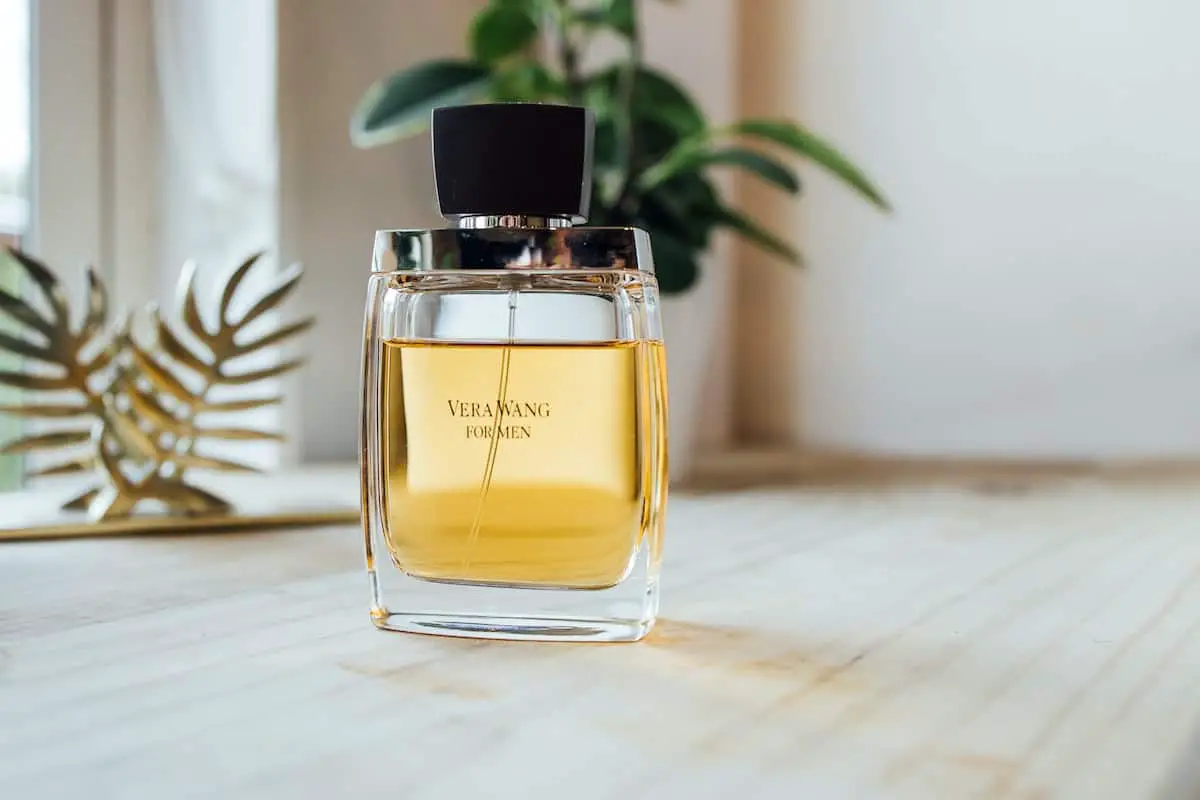Perfume Oil vs Perfume: 11 Key Differences Explained!
When purchasing a perfume, you will often come across two types of options of the same fragrance; one that comes as a spray or perfume, and the other that comes as a perfume oil. If you have only ever used one of the two, it may make you wonder how is perfume oil different from perfume, and which one is better!
So, in this article, we shall take a detailed look at the key differences between the two types of fragrances i.e. perfume oils and perfumes.
So, let’s get started!
What is Perfume Oil?
Let’s first quickly understand the two terms a bit more before we begin comparing them.
Perfume oil is a type of product that contains a fragrant mix blended in oil (as opposed to alcohol). It is usually applied to the skin on the pulse points. You typically need to use a perfume oil applicator or roll on when applying perfume oil.
I’ve actually written a dedicated article on perfume oils that goes in-depth on this topic. Make sure that you check out that article to learn more about perfume oil!
One thing that I would like to highlight here is that people often confuse perfume oil that is available for consumers (the one that comes in a rollerball) with perfume oil (oil concentrates) used in making perfume since both are referred to as “Perfume Oil”!
Hopefully, this will clarify the way you look at perfumes and possibly also help you understand this article better!
What is a Perfume?

A perfume is a fragrant liquid that contains fragrance oils blended usually in alcohol. The oils used in a perfume vary from a 1% to 40% concentration depending on the type of perfume. Perfume is usually contained in a bottle and sprayed on skin or clothes.
There are actually 5 main types of perfumes based on dilution classes. These are Extrait de Parfum, Eau de Parfum, Eau de Toilette, Eau de Cologne, and Eau Fraiche. (click on the link to read more)
The alcohol content of each perfume also varies in addition to the concentration of the oils. Furthermore, each type of perfume has its own characteristic and purpose.
Key Differences Between Perfume Oil and Perfume
Now that we have understood the basic meaning of the two terms, let’s take a look at the difference between perfume oil and perfume
1. Carrier Base Used
One of the biggest differences between perfume and perfume oil is the base used as a carrier of the fragrance.
As you may be aware by now, perfume oil uses oil as a base. Typically oils that are fragrance neutral such as fractionated coconut oil or jojoba oil are used as a base. These are natural products.
On the contrary, perfumes primarily use alcohol as a base. Alcohol provides certain special qualities that allow the notes of perfume to be exhibited appropriately. Alcohol also allows the fragrance molecules to travel further due to its high evaporation rate.
Some perfumes such as Eau Fraiche also use water as a base mixed in very low levels of alcohol. Such products work very well with people who prefer to use spray perfume but have sensitive skin.
2. Longevity
Another key difference between perfume and perfume oil is longevity.
Perfume oils are usually heavier on the base notes. Furthermore, since oil doesn’t evaporate as quickly as alcohol, the fragrance molecules in the perfume oil tend to last long due to the usage of oil as a base. Most perfume oils will quite easily last about 10 to 12 hours, however, some perfume oils can last as much as 20 hours as well.
On the contrary, perfume doesn’t really last as long. Depending on the type of perfume, it can last anywhere from 30 minutes to about 12 hours. That said, the longevity of most perfumes will fall in the range of 6 to 8 hours on average.
Base notes in the perfume oil further increase the longevity of the scent.
3. Performance
People often confuse the longevity of perfume with performance. A common misconception is that if a perfume lasts long, it has a good performance.
However, the performance of a perfume is measured by the sillage (the trail of perfume left behind when a person walks through the room) and perfume radius (distance a scent radiates from a person)
Perfume and perfume oil also differ in their performance. Typically, perfume tends to have a much stronger sillage and a higher perfume radius. Meaning, alcohol-based perfumes usually have a strong and wider impact than oil-based perfumes.
Perfume oils typically maintain a low profile. They have a lower sillage and a much lower perfume radius.
4. Price
Another difference between perfume oil and perfume is the price at which it is available to the consumer.
Since perfume oils typically only use the extract blended in naturally available oils that are relatively inexpensive, the cost of manufacturing the perfume oil is much lower.
On the contrary, perfumes typically tend to use not just essential oils mixed in perfumers alcohol, but also several additives are added to the mix. This increases the cost substantially.
Moreover, the process of developing a perfume requires a combination of art and science. This requires specialized skills and the perfumers are well compensated for the task.
Thus, overall, perfume oil is more affordable and a better bang for the buck for a consumer.
5. Note Contrast
You will also notice that there is a stark contrast in which each of the two types of fragrances exhibit the notes.
Since perfume is an alcohol based fragrance, the notes are more noticeable. Alcohol makes certain ingredients present in perfume shaper and more perceptible.
When using perfume, you will be able to easily notice the top notes, mid notes and the base notes.
On the contrary, perfume oils tend to soften the composition. It usually ends up muting certain notes; particularly the top notes.
Typically, when using perfume oils, you will get a consistent scent where all the notes are blurry and often difficult to clearly identify.
6. Flammability
One major difference between perfume and perfume oil is their nature to catch fire!
Spray perfumes are usually made of alcohol. It typically contains about 60-90% alcohol. Since alcohol is a major component of a perfume, it makes a perfume quite flammable and a fire hazard!
Perfumes can catch fire when exposed to temperatures in excess of 50°C.
Storage of perfume becomes an important issue as it can not be exposed to high temperatures and flames. Likewise, carrying a perfume bottle on an airplane or shipping it in mail comes with significant limitations and restrictions.
On the contrary, perfume oils typically have a much higher tolerance towards heat and they do not catch fire that easily. This makes perfume oils less flammable and easier to store, transport and carry.
7. Subtleness
Another differentiating factor between perfume and perfume oil is the subtle nature of the two fragrances.
As explained earlier, perfume oils don’t have a high perfume radius. Meaning, the scent won’t travel too far away from the source. This is primarily due to the fact that perfume oils are blended in oil. The heavier oil tends to stick to the skin and, as a result, the fragrance molecules don’t travel too far in the air.
Generally speaking, the scent from perfume oils can be noticed usually just by the person wearing it or by people standing very close by. This makes perfume oil subtle in nature and an intimate fragrance!
On the contrary, alcohol present in spray perfume tends to have a higher diffusion rate and allows the fragrance molecules to unlock and travel much farther from the radiating source. As a result, most perfumes tend to have a much higher sillage than perfume oils!
8. Method of Application

Perfume and perfume oils also differ in the method of application.
Perfume comes in a bottle with a spray nozzle attached to it. Typically, perfume is sprayed by the user either in skin or on clothes (or both). Number of spritzes vary based on the strength of the perfume and personal preference.
Occasionally, perfume is also available to be dabbed or splashed on the skin.
On the contrary, perfume oils are usually available as a roll on or a dabber. They are supposed to be applied mostly on the skin. Applying perfume oils on clothes tends to leave a stain due to the higher amount of oil present in perfume oils.
9. Toxicity
It is a known fact that perfumes need to use alcohol based chemical fixatives in order to maintain the fast evaporation rate
But, it is not just alcohol used that is a cause for concern. Some of the other chemicals used include parabens, phthalates, etc. These chemicals not only harm the environment, but are also significantly toxic to our body! Synthetic fixatives used in a perfume can cause allergies, migraines and even lead to changes in the hormonal balance!
In short, perfumes are fairly toxic to the body and prolonged use can cause damage.
Perfumes are also dangerous if accidentally ingested by children or if sprayed in the eyes! For this reason, it is usually recommended to keep perfume away from children.
On the contrary, perfume oils use natural oils as a carrier. These oils are not toxic but are rather soothing to the skin! You get a dual benefit of enjoying the fragrance as well as nurturing your skin when you use perfume oils!
10. Variety
Another difference between perfume and perfume oil is the variety of options that are available to the consumers.
Perfume oils are usually limited in options. Since the combination and exhibition of multiple ingredients in perfume oils is difficult, there aren’t too many options that are available for consumers.
On the contrary, perfumes tend to offer more flexibility. Since perfumes are usually alcohol based, a variety of ingredients can be used giving a larger variance in the scents. This also allows perfumers to provide a variety of different perfumation and combinations, and multiple different options for consumers.
11. Allergic Effects
The last difference that I would want to talk about is the possibility of allergic reactions.
As you may have guessed, perfumes tend to cause more allergic reactions amongst people due to the use of synthetic chemicals and fixatives. The effect is further magnified amongst people with sensitivities.
On the other hand, the possibility of allergic effects due to usage of perfume oils is quite limited. Perfume oils are perfectly suited even for people with skin sensitivities. Due to usage of naturally occurring ingredients, perfume oils tend to cause a lower number of allergic reactions.
Is Perfume Oil Stronger Than Perfume?
Perfume oil that is used for making a perfume is obviously going to be stronger than perfume since perfume oil (or the fragrance) itself is usually diluted further using alcohol or water during the manufacturing process of a spray perfume.
That said, perfume oil that we are considering for this article is the one that is available to consumers for application. This perfume oil is usually diluted using oils (instead of alcohol) before making it available to the consumers.
So, in theory, if a perfume is available both as an oil or a spray, both would usually contain the same concentration of the fragrance.
One other thing to note here would be that perfume spray may feel stronger to some people initially. This is so because the alcohol in perfume tends to have a faster evaporation rate than oils in perfume oil. As a result, top notes are really perceptible and can sometimes overwhelm our olfactory senses.
Does Perfume Oil Smell Better than Perfume?
It is important to understand that the concentration of fragrance ingredients in both perfume oil and perfume is usually the same. Just that fragrance stays in the concentrated form in the oils whereas it gets blended with perfumers alcohol in a perfume spray
Thus, in theory, both perfume oil and perfume should technically smell the same. However, in practise, the result doesn’t always match.
Ultimately it boils down to your skin type, body chemistry and the way a perfume reacts to your skin as it varies from person to person.
It is hard to say if perfume oil smells better than perfume (or vice-versa) as the result may vary from one person to another.
Which One Should You Buy: Perfume Oil or Perfume?
Perfume oil is better suited if you want an intimate fragrance and restrict the scent to just yourself. However, you should buy a spray perfume if you want to leave a trail of your fragrance or want your presence to be felt in the room.
Perfume oil will give you better value for money. However, if you are undecided, I would recommend you to try out both and see which one is better suited for your needs.
Afterall, the way a fragrance reacts to one person is quite different from the way it reacts to someone else. So, it is best to experiment and see what works best.
Credit to MART Productions (on Pexels) for the featured image of this article

![How Long Does Apple Watch Last? [Lifespan and Battery!]](https://styleuphq.com/wp-content/uploads/2022/08/female-hand-with-modern-smart-apple-watch-2022-08-01-03-44-51-utc-1067x800.webp)
![Using Perfume for Dogs: Is it Dangerous? [Comprehensive Guide!]](https://styleuphq.com/wp-content/uploads/2021/09/portrait-of-happy-multiracial-couple-scratching-th-9ZJ73ZW-optimized-1200x800.jpeg)
![Does Apple Watch Charger Work on iPhone? [Simple Guide!]](https://styleuphq.com/wp-content/uploads/2022/05/Depositphotos_411188904_XL-Apple-Watch-Charging-1.webp)

![Does Apple Watch Need a Data Plan? [Complete Guide!]](https://styleuphq.com/wp-content/uploads/2022/03/pexels-torsten-dettlaff-437037-1200x800.jpg)
![How to Make Shoes Smell Better? [Comprehensive Guide!]](https://styleuphq.com/wp-content/uploads/2023/09/young-woman-holding-a-pair-of-smelly-shoes-2021-10-06-09-50-46-utc.jpeg)